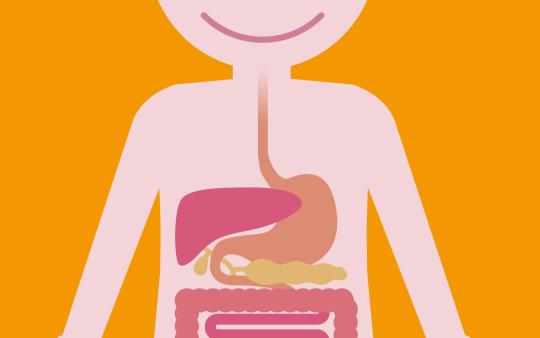There is still a lot we don’t know about our gut and good bacteria, and we don’t really understand the full consequences and effects of taking antibiotics, especially with our kids. Science tells us that promoting good belly bugs is essential for building a robust set of biological systems. The next frontier of modern medicine and research is to study the 3 trillion bacteria that live in our bodies and play a large role in our continued health. Read on to find out how to ensure your child's gut health stays strong even after antibiotics are taken.
What we know about antibiotics
- Antibiotics damage your child’s gut bacteria which causes an imbalance called dysbiosis.
- Your gut houses about 80% of the body’s immune cells.
- Antibiotics may cause a reduced immune response (one known symptom is diarrhea, and as you may know, your baby's poop can reveal a lot).
- Antibiotics in infancy have also been tied to an increased risk for infections, allergies and other disorders, and even obesity, later in life.
- Antibiotics can create an “obese situation” that causes people to gain weight; probiotics can reverse it.
- Probiotics cut the chances of getting antibiotic-induced diarrhea by 20-50% and help prevent other infections that we often turn to antibiotics for.
- Probiotic dosage should be more than 5 billion daily to help with the damage to gut health after antibiotics.
How to heal your child's gut after antibiotics
There comes a time when antibiotics are necessary. When this happens, it is important to support the health of your gut before and after the antibiotics to ensure optimal balance of total health. Here are some tips to help you do just that.
Make sure your children eat real food
Your children don’t need a concoction of additives, preservatives, trans fats and other fake foods and do your best to provide a whole food diet for the whole family. Limit the amount of packaged food they eat and focus on a balanced diet of foods which include actual salt, saturated fats, protein, well prepared grains, and a variety of vegetables. Limit their consumption of sugar and simple carbs, as bad bacteria in the gut tend to thrive on these foods. Here are some more tips to build your baby's microbiome through diet.
Feed your kids probiotic foods
Probiotics are the good bacteria required by your body to promote good digestion and gut health. Antibiotics don’t just kill the infection and bad bacteria in our bodies - they also destroy the good bacteria, which can have a devastating effect on your child’s health. Because even the good bacteria are being destroyed, it is our responsibility to replace it and repopulate both our children’s gut as well as our own with good bacteria again.
The best way to get good bacteria into your children’s digestive system is by feeding them a variety of fermented and cultured foods such as yogurt, milk kefir, water kefir, kombucha, and fermented vegetables. You can even make your own fermented foods!
Promote a prebiotic-rich diet
Prebiotics are non-digestible ingredients which make it a lot easier for the good bacteria to thrive within our digestive system. Most prebiotics are special as they make it easier on your gut by creating a good environment by selectively stimulating the growth of these good bacteria. Leeks, garlic, honey, bananas, onions, chicory root and Jerusalem artichokes are great prebiotics to mix in with your kids’ food.
Plan for a healing, anti-inflammatory diet
Those of you whose children are experiencing limited healing in their gut should opt for a special healing diet, which can help their gut recover a lot faster. Anti-inflammatory foods, such as bone broth and gelatin, can be included as they help heal and restore the mucosal lining in your digestive system. (Try our anti-inflammatory smoothie recipe.)
Probiotics after antibiotics
Can I take probiotics at the same time as my antibiotics or will it just cancel out?
When you are on antibiotics, it is recommended that you take probiotics twice a day, 2 hours after the prescribed dosage of antibiotics. This is done to avoid killing the supplemented probiotics. It should roughly be over a 5-10 day period. Consult a dietician or health professional before applying this schedule to your kids.
How long should my child take probiotics after completing a round of antibiotics?
Probiotics are one of the most important things you can give your child after a round of antibiotics. Our digestive tract makes up roughly 70% of our immune system, so it is important to support it for gut health after antibiotics. 80% of our gut bacteria are killed off with a single round of antibiotics, and if you don’t supplement with probiotics it can take an average of 18 months to fully replenish your gut with good bacteria. Encourage your kids to take their probiotics alongside their antibiotics instead of waiting to finish their course of antibiotics first.
Happy good bacteria building!
Is your baby just starting solids? Be sure to check out our guide to nutrition at all ages and stages. And you'll also want to know the top nutrition supplements for healthy children.
*Originally published September 27, 2016









